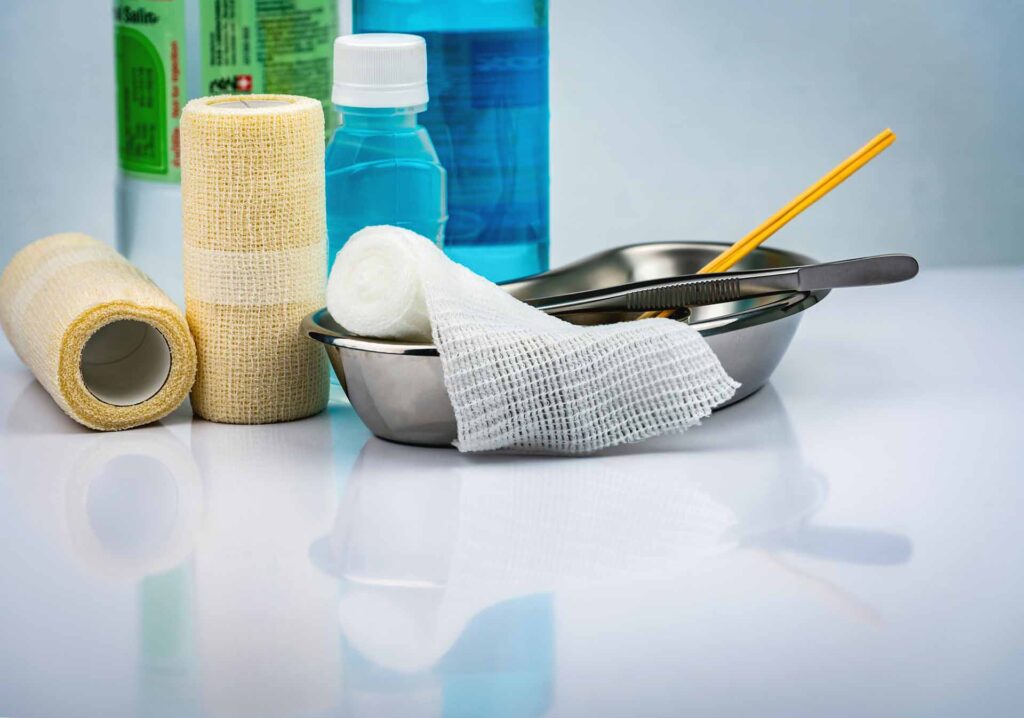Surgery recovery can be daunting. It doesn’t have to be as hard as it sounds. Get back to your best life after surgery recovery with these tips!
Before surgery, enlist some help.
Start with the basics and ensure you’ve got a support group. People you choose for this should be motivated to help you return to a healthy you and stay on target for recovery after your surgery.
For example, chances are you’ll need a ride home post-op. Depending on your surgery, this could be the same day or a few days later. Make sure to speak with your physician and surgeons about when you’ll be ready to go home.
Sometimes your surgery will impact what you can eat and drink afterward during recovery. If that’s the case, you’ll want the right foods in your kitchen waiting for you when you get home. Prep a shopping list and get that tackled the week before your surgery, so you don’t have to worry about it later.
Surgery recovery means let yourself heal.
The typical length of surgery recovery depends on your procedure.
It’s no laughing matter. Surgery is stressful. After your surgery, you need to let yourself heal. The amount of time depends on the type of surgery/procedure you have done. Things like brain surgery can take a recovery time of months. Typically, the more complex the operation, the more recovery time.
For instance, a surgical procedure such as a hip replacement can take several months to recover, while a less invasive procedure such as a tonsillectomy can take a few days.
Your medical provider and surgeon will be able to elaborate on exactly how much time and what factors impact this.
Take time off from work and screens.
You probably aren’t coherent due to anesthesia and medication. You may not need to have your head, shoulders, and arms in a position that stresses out your surgery site. Try your best to take the right amount of time off from work, and reduce your screen time to optimize your capability to heal.
Get plenty of rest.
On that note, actually rest during your recovery time. You should not feel guilty for needing time to recover from surgery. Don’t try to work at your job. Don’t stress out about housework. You won’t heal if you’re not giving yourself a break. Try to sleep full nights, and don’t set the alarm unless you have to. That’s not to say that you should lay in bed all day every day for months. Yet, you should take a load off and give yourself some restorative care.
Eat healthy, nutritious foods.
Eating healthy post-surgery helps to promote healing, reduce inflammation and encourage healthy tissue regeneration. A balanced, nutrient-rich diet can help ensure the body has the energy and resources to recover correctly.
The most crucial nutrient for post-surgical healing is protein. Protein helps to build and repair cells and tissues, as well as to regulate hormones and enzymes. Good protein sources include lean meats, poultry, fish, eggs, dairy, nuts and seeds, beans, and legumes. Eating various protein sources helps ensure you get all the essential amino acids your body needs.
Stay hydrated.

Did you know your body uses more water when it is healing? Water helps to promote digestion, regulate temperature, and flush toxins.
Aim to drink at least eight glasses of water per day. Though it may help you drink more fluids, avoid sugar-sweetened beverages, including soda, juice, and sports drinks.
Try to lay off Gatorade and other sports drinks, especially since they often contain a lot of salt. Salt will dehydrate you, and you’re probably already getting what you need from your food intake. Be mindful of guidance from your doctors on this one, though. Your body is unique, and your circumstances may dictate a need for more salt and electrolytes than other people.
Follow healthcare provider’s instructions for surgery recovery.
They’ve seen it before, have you?
After surgery, follow all instructions from your physician. Your healthcare providers are practiced experts and have been through this before. Their instructions are valid and proven, so try to adhere to them.
These instructions can range from simple activities, like getting plenty of rest, to more specific instructions, such as taking prescribed medications. You must follow these instructions to ensure a successful recovery.
Keep your follow-up appointments.
Follow-up appointments after surgery ensure that you are healing correctly and that your body responds to the surgery. These appointments allow your doctor to check your progress, monitor your recovery, and ensure you receive the necessary treatments or medications. Depending on your situation, follow-up appointments can occur anywhere from a few days to several months after surgery.
Be honest with your physician at follow-up appointments. It may not be comfortable, but honesty and transparency will serve you well. Mention the discomfort you may be experiencing. Report new symptoms. This information could mean the difference between a healthy recovery and the need for more procedures down the road.
Know when you should go to the ER.
After surgery, specific symptoms and signs may indicate serious complications. Know these signs and seek medical help when they are present.
If you experience severe and unusual pain after surgery, heavy bleeding, a fever not relieved by acetaminophen, difficulty breathing, chest pain, or dizziness, go to the emergency room.
In addition, if you notice any signs of infection at the site of your surgery, such as redness, swelling, or pus, you should go to the emergency room. These symptoms could be signs of a severe surgical site infection that warrants immediate treatment.
Suppose you experience other unusual symptoms, like confusion, a rapid heart rate, or difficulty speaking. In that case, you should seek medical help immediately.
Stay clean during surgery recovery.
Keep yourself clean during your recovery process! Infection can be deadly, and when you’ve just had surgery, this is a particularly vulnerable time for your immune system. Staying clean and hygienic is crucial for proper healing and recovery.
Use mild soap and warm water to clean yourself. Change your bandages regularly. Keep your healing wound dry since a damp environment is an excellent place for infections to brew.

Wear loose clothing that won’t rub against your surgery site. Avoid activities that pressure the healing wound or cause it to become wet. Don’t touch your surgery site with dirty hands, and try to avoid touching it at all unless you’re cleaning it.
Follow your doctor’s instructions for wound cleaning and care. These practices reduce infection risk and empower your body’s healing capabilities.
Monitor vital signs and symptoms during surgery recovery.
Keeping track of your vital signs post-op can alert you to complications before they become too severe. Pay attention to temperature, heart rate, blood pressure, respiratory rate, and oxygen saturation. Monitor these signs regularly to ensure you are healing correctly and detect potential issues.
Things like body temperature can indicate a fever you should treat. We mentioned it earlier, and we will repeat it – if you have a fever that isn’t going down with acetaminophen, you should go to the ER!
Tracking your pulse (heart rate) and resting heart rate (heart rate when you’re asleep) can help prevent a condition from becoming severe or deadly. Know your baseline. Your physician will be taking baseline measurements pre-operation, so pay attention.
You can also take your own baselines using the smart tech devices you may already own. Tracking your vitals with Apple Watch, Fitbit, Google Fit devices, and other tools is easy. These data providers can even sync with mobile apps to help you monitor your health before and after surgery.
Use multiple tools and want to combine that data with a symptom diary? Check out the mobile app Best Life!
Don’t stay in bed forever.
Get your digestive tract mobile.
Being very sedentary during recovery can lead to constipation and other digestive issues. Don’t set out to do one hundred sit-ups, but taking a short walk around the house and yard will do loads of good for your body.
Exercise when safe and appropriate.
That is, a short walk will do loads of good for your body if that’s something your post-op instructions say you can do. If you just had knee surgery, this may be a more daunting task than otherwise.
Take it easy; walk before you run.
Suppose you’re a very active person, a runner, a swimmer, or anything like that. In that case, you may be tempted to return to that lifestyle sooner than recommended. Stay mindful that you’re still human and must recover from surgery. Surgery is a stressful event on your body, and you deserve the time to heal properly.
Conclusion
It’s essential to factor in your age, overall health, and lifestyle. Elderly individuals or those with existing medical conditions may need a lengthier recovery period. Similarly, those who are more active or have an active lifestyle during the recovery phase may take longer to recover than those who are mindful of their body during this time.
Your overall attitude and approach to recovery can play a significant role. Following all doctor’s orders, such as taking medications and following the recovery plan, can help to speed up the healing process. Additionally, getting plenty of rest, nutrition, and exercise can help to promote healing and reduce recovery time.
Sources
- https://stanfordhealthcare.org/medical-treatments/g/general-surgery/procedures/discharge-planning.html
- https://www.mayoclinichealthsystem.org/hometown-health/speaking-of-health/preparing-for-surgery-what-you-need-to-know
- https://healthtalk.unchealthcare.org/5-tips-for-a-smooth-recovery-after-surgery/
- https://www.verywellhealth.com/post-surgery-recovery-tips-and-guide-3156833
- https://www.asahq.org/madeforthismoment/preparing-for-surgery/recovery/
- https://health.ucsd.edu/specialties/surgery/patient-resources/pages/default.aspx
- https://www.aana.com/practice/clinical-practice-resources/enhanced-recovery-after-surgery
- https://mayfieldclinic.com/pe-chiari-surgery.htm
Who we are
The Live Learn Innovate Foundation is a 501(c)3 nonprofit entity that empowers software users to regain control of their personally generated health data, gain intuitive insights about their social data, learn the impact of their environment on health, and build a foundation of data analytics that empowers research, academics, and innovation in economic development.
Use cases for this secure, private data aggregation method appear everywhere, expanding to family care, community growth, agricultural planning, and many more things still unseen. Help us keep going by getting involved today.